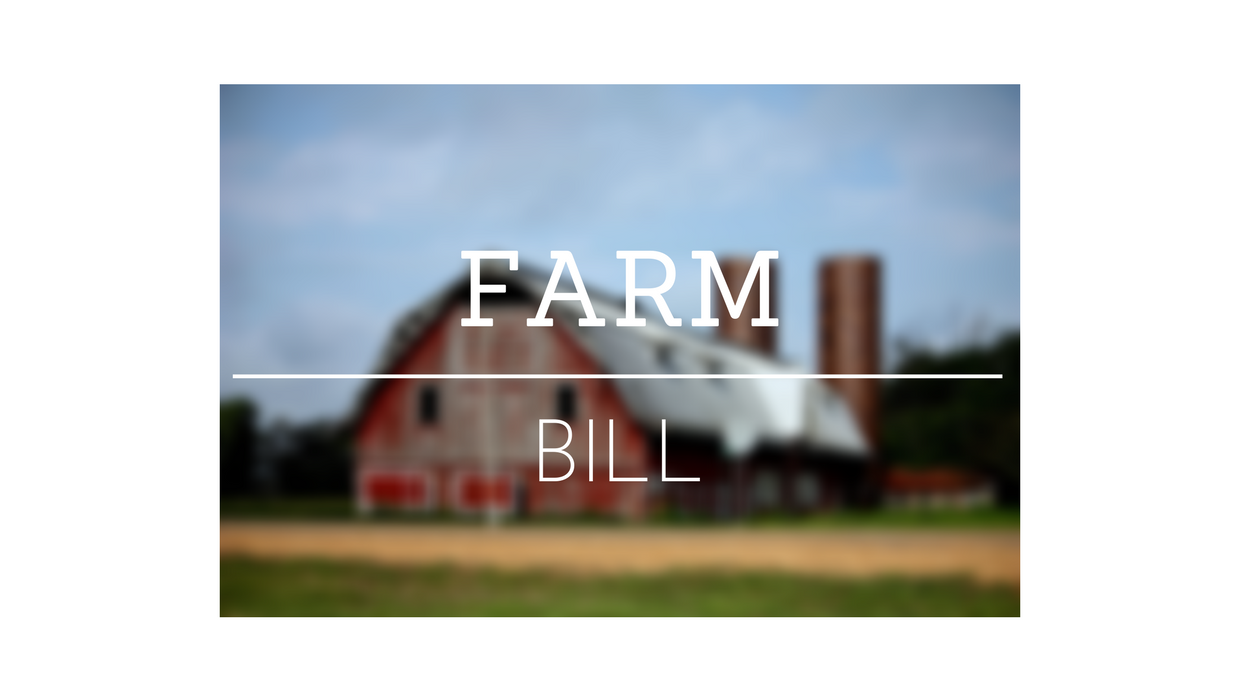As the Senate’s version of the 2018 farm bill was released June 8, interest groups offered their opinions. Here’s a sampling.
American Farm Bureau Federation President Zippy Duvall said, “America’s farmers and ranchers are facing an economic storm across the countryside, so the release today of the Senate farm bill is a crucial step to move the very important farm bill process forward. Farm income is at a decade low. Farm debt is on the rise and international markets for our farm goods are in jeopardy.
“The Senate Agriculture Committee, led by Chairman Pat Roberts, R-KS, and Ranking Member Debbie Stabenow, D-MI, have worked hard to address those economic challenges and assemble a bipartisan bill that provides the clarity, policy certainty and vital risk protection tools that our farmers need now more than ever.”
National Farmers Union President Roger Johnson said, “The Senate’s draft text of the 2018 farm bill makes significant improvements over the current version of the House bill. Nonetheless, we will encourage the Senate to make important improvements to the farm safety net and to programs that enhance long-term sustainability and access to markets for family farmers and ranchers.”
The National Pork Producers Council said in a statement it was encouraged that language establishing a vaccine bank to deal with an outbreak of foot-and-mouth disease was included in the proposed Senate farm bill.
“This is encouraging news for the livestock industry,” said NPPC President Jim Heimerl, a pork producer from Johnstown, Ohio, and chairman of NPPC’s Farm Bill Policy Task Force. “With a vaccine bank, we’ll finally be able to adequately prepare for an FMD outbreak. But we do need mandatory funding to make it work.”
National Association of Wheat Growers President Jimmie Musick said, “NAWG commends the Senate Agriculture Committee for working together to introduce a bipartisan bill that supports farmers and agriculture. While NAWG is still reviewing the language of the bill, we see several provisions that are very positive for wheat farmers.
“NAWG is pleased that this process is moving forward with support from both sides of the aisle, and we urge both Chambers to complete action on a full farm bill reauthorization before the current one expires on Sept. 30th.”
National Sorghum Producers thanked Roberts in its statement.
“NSP looks forward to timely passage of the 2018 farm bill, which will provide valuable support for U.S. sorghum providers. Chairman Roberts continues to be a champion for sorghum and consistently advocates on behalf of producers across the United States.”
Scott Faber, vice president of government affairs for the Environmental Working Group, said, “The bipartisan farm bill released by the Senate Agriculture Committee is a sharp contrast to the terrible, partisan farm bill proposed by the House. Although far more conservation spending is needed to address the health impacts posed by farm pollution, the Senate bill includes important reforms that will better target and leverage conservation programs to protect sources of drinking water.
“In addition, the Senate bill, unlike the House bill, does not create new loopholes that would allow farm subsidies to flow to billionaires or distant relatives of farmers. However, the Senate bill does not go nearly far enough to rein in farm subsidy programs.”
Callie Eideberg, senior policy manager, sustainable agriculture for the Environmental Defense Fund, said, “With a focus on soil health, technology and innovation, the Senate bill is truly a farm bill for the 21st century. It maintains full funding for core conservation programs and brings the digital revolution to the farm.
“For the first time, land-grant university researchers can use farm-level data to calculate how conservation practices impact crop yield and risk—insights that can help farmers decide whether to invest in precision conservation technologies, while maintaining their privacy.
“The bill also ensures that farmers who use innovative stewardship practices and technology maintain eligibility for crop insurance safety nets, and it increases funding for the Regional Conservation Partnership Program, which pairs public and private dollars to scale impact.”
Larry Dreiling can be reached at 785-628-1117 or [email protected].


